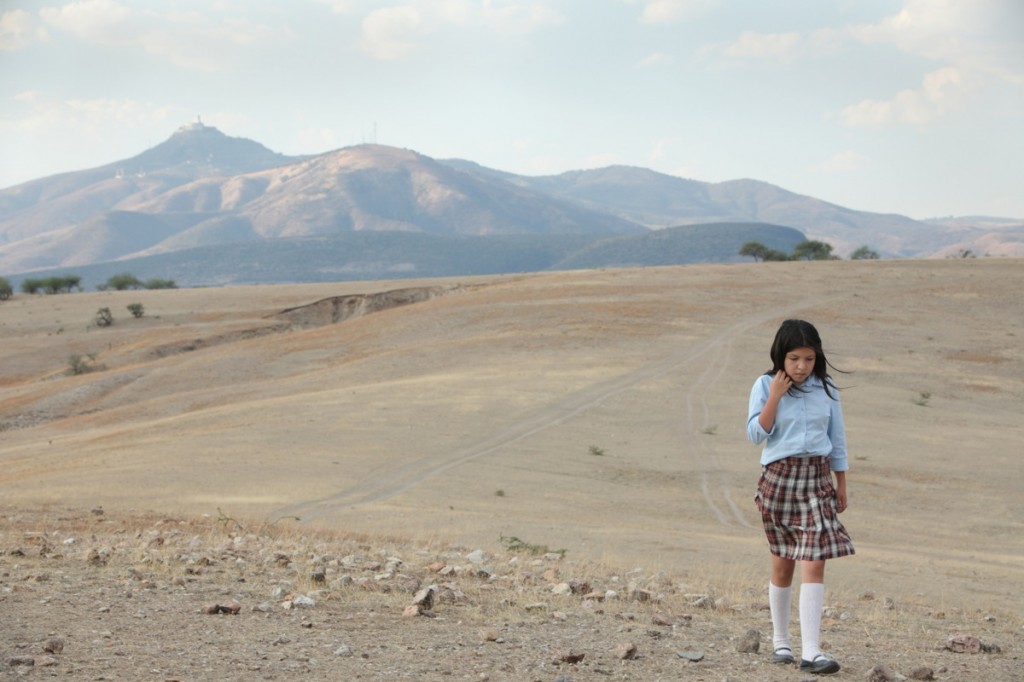Heli Review
A depressing insight into a poor family in Mexico makes for uneasy if occasionally powerful viewing in Heli, Amat Escalante’s third feature following Sangre in 2005 and Los bastardos in 2008.
Heli is named after its central character, a poor young man who works at a local Japanese Automobile factory and lives with his partner, their daughter, his sister and his father in a small and rundown house. His sister Estela is only twelve but is in a relationship with the 17 year-old Beto, a police cadet who is currently going through some very gruelling training – the sole American voice in the film is an instructor ordering that he must roll over his own vomit – in order to join the Mexican drug war.
In an effort to impress Estela and to fund their running away together, Beto steals a large amount of cocaine and the effects of this choice are felt not just by him but Heli and his whole family. A chilling sequence which opens the film involving a hanging over a motorway gives us an early sense that this will never be a happy story but the events depicted are often more nightmarish than one may even expect.
Watching Heli is something of a gruelling experience and as Escalante piles on one heinous abuse after another, there is an act of animal cruelty and one of genital mutilation that are particularly difficult to stomach, one gets the sense that maybe Escalante could be falling into exploitation traps. Wisely though Escalante, and co-screenwriter Gabriel Reyes, ensure that everything has a narrative and thematic purpose and the often brutal or miserable scenarios are never simple provocation. The aforementioned genital mutilation occurs during a torture sequence which reveals a disturbing effect of the trickle-down impact of the drugs trade in Mexico and what this can do to smaller communities. It also features children witnessing and partaking in the crimes, all whilst an Xbox game hums on a screen in the background.
Cinematographer Lorenzo Hagerman, whose background is in documentary filmmaking, takes a relatively naturalistic and simple approach to the camerawork, with long takes and simple framing often adding to the unease of watching what is on screen. There are breaks to this naturalistic approach though. An odd logic slip in the use of diegetic sound is almost certainly a misstep and a rare moment in which you are snapped out of the film but a crane shot during one of the film’s more emotional moments, almost certainly the only one in the film, is superbly handled and effectively adds to the impact of the scene.
A dark tale, Heli is certainly not easy viewing but Escalante’s bleak journey is one worth taking, for its raw and intense power is often rather extraordinary.
